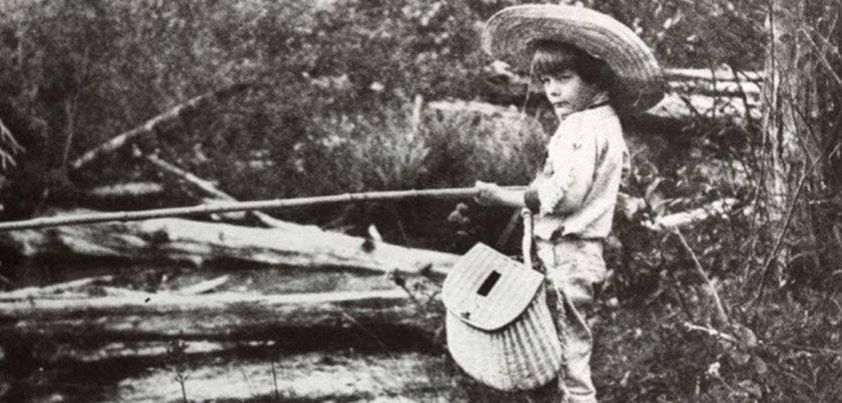 This story by Ernest Hemingway tells how a young boy ‘comes of age’ as he witnesses the saving of a woman’s life, the birth of her baby, and the death of her husband – all in the space of just a few hours. A feature of Hemingway’s short stories is that he often leaves important details open to the reader’s interpretation. In this story, we come away wondering why the woman’s husband killed himself. Some people suggest that the boy’s Uncle George may have had something to do with it. Themes: birth and death, suffering, masculinity, suicide.
This story by Ernest Hemingway tells how a young boy ‘comes of age’ as he witnesses the saving of a woman’s life, the birth of her baby, and the death of her husband – all in the space of just a few hours. A feature of Hemingway’s short stories is that he often leaves important details open to the reader’s interpretation. In this story, we come away wondering why the woman’s husband killed himself. Some people suggest that the boy’s Uncle George may have had something to do with it. Themes: birth and death, suffering, masculinity, suicide.
Indian Camp Text / PDF / Audio (1,450 words)
General Comments
Indian Camp was one of Hemingway’s earlier short stories, and the first in his famous ‘Nick Adams’ series. At the end of the story most people are left wondering what Hemingway had in mind when he had the pregnant woman’s husband kill himself. When the young boy asks his father about it, the answer is: I don’t know, Nick. He couldn’t stand things, I guess. However, we are not told what those ‘things’ are.
Many readers put it down to the stress of the man having had to look on for two days as his wife suffered great pain. The narrator tells us that The (other) men had moved off up the road to sit in the dark and smoke out of range of the noise she made. The husband could not do this as he had a badly injured leg. Supporters of this view claim that Hemingway was contrasting how Western and American Indian cultures react to pain in others. The doctor is all business and, although he saves his patient and her baby, he blocks out her screams. I don’t hear them, he says, because they are not important. The husband on the other hand is so in touch with his wife that he can not stand to see her in such pain. Her pain is unbearable for him, and he kills himself to kill the pain he felt coming from his wife.
Another suggested reason for the suicide is shame associated with the fact that Uncle George may be the father of the baby. George clearly has close relations with the Indians. The opening lines suggest that he came from the Indian camp with the two Indians to bring back the doctor. Next we see him handing out cigars to the Indians, an American birthing tradition which is believed to have come from Indian culture. During the operation, the woman bites George on the arm. Was this because she associated George with the pain she is going through? Or even worse, could she have fallen pregnant because George forced himself on her? The young Indian seems to know the answer, as he has a good laugh over the bite. Finally, we see George remaining at the Indian camp after the birth. One sign of a good author is the ability to write stories in which different people can see such different things.